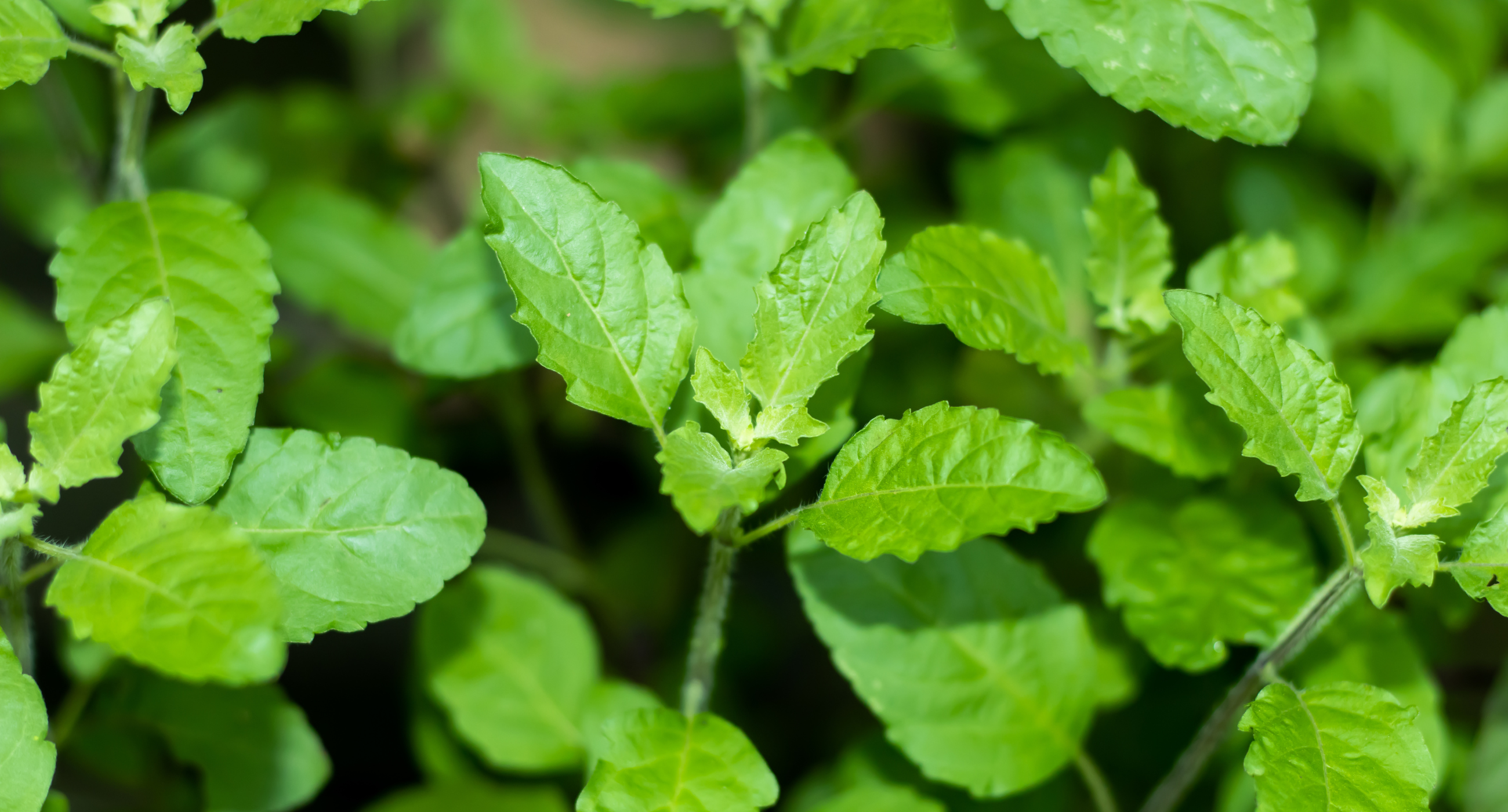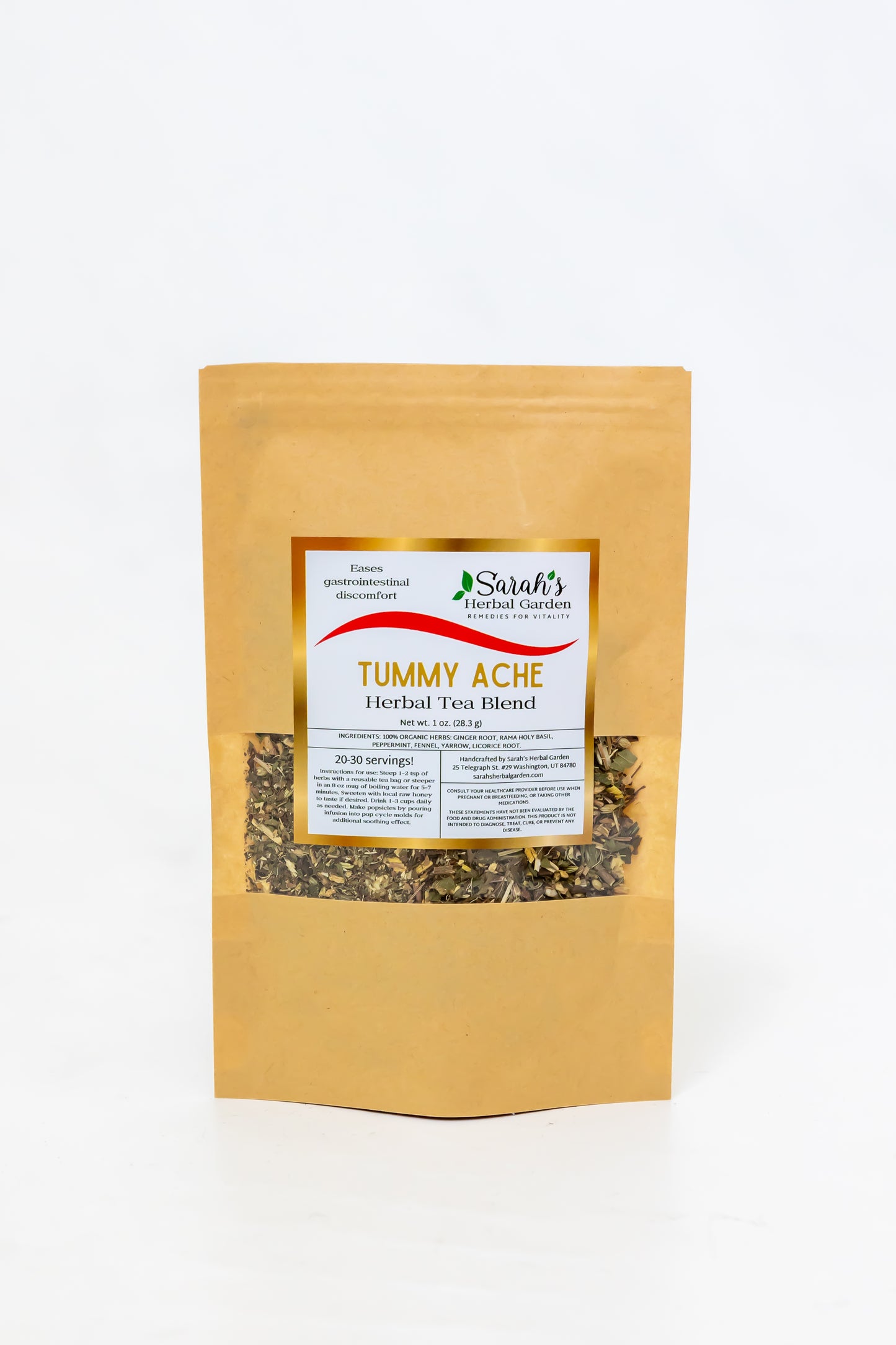
Rama Holy Basil (Tulsi)
Scientific Name: Ocimum tenuiflorum
Herbal Profile: Rama Holy Basil (Ocimum tenuiflorum)
Botanical Name: Ocimum sanctum (synonym Ocimum tenuiflorum)
Common Names: Holy Basil, Tulsi, Green Tulsi, Rama Tulsi
Family: Lamiaceae (Mint family)
Parts Used: Leaves, stems, seeds, and sometimes roots
Description: Rama Holy Basil is a small, aromatic perennial shrub with green leaves and a strong, sweet aroma. It grows up to 1-2 feet in height. The leaves are ovate and have a slightly toothed margin, and they release a spicy, clove-like fragrance when crushed.
Active Compounds:
- Eugenol: A phenolic compound with antiseptic, antibacterial, and anti-inflammatory properties.
- Ursolic Acid: An anti-inflammatory and antioxidant compound that may help protect against cancer and other diseases.
- Rosmarinic Acid: An antioxidant that helps protect cells from damage caused by free radicals.
- Oleanolic Acid: An anti-inflammatory and antitumor compound.
- Caryophyllene: A terpene with anti-inflammatory and analgesic properties.
- Flavonoids: Such as apigenin and luteolin, which have antioxidant and anti-inflammatory effects.
- Volatile Oils: These contribute to the characteristic aroma and therapeutic properties.
Properties:
- Adaptogenic: Helps the body adapt to stress and promotes homeostasis.
- Anti-inflammatory: Reduces inflammation in the body.
- Antioxidant: Protects cells from oxidative damage.
- Antimicrobial: Inhibits the growth of bacteria, viruses, and fungi.
- Immunomodulatory: Modulates and strengthens the immune system.
- Antidiabetic: Helps regulate blood sugar levels.
- Antipyretic: Reduces fever.
- Analgesic: Provides pain relief.
- Antitumor: Potentially inhibits the growth of cancer cells.
- Hepatoprotective: Protects the liver from damage.
- Cardioprotective: Supports cardiovascular health by reducing cholesterol and protecting the heart.
Therapeutic Uses:
- Stress and Anxiety Relief: As an adaptogen, Holy Basil helps reduce the effects of stress on the body and mind. It can help alleviate symptoms of anxiety and promote a sense of calm.
- Immune Support: Holy Basil enhances immune function, making it beneficial for preventing and treating infections. It has antimicrobial properties that help fight bacteria, viruses, and fungi.
- Respiratory Health: Tulsi is commonly used to relieve respiratory conditions such as asthma, bronchitis, coughs, and colds due to its ability to clear mucus and reduce inflammation in the airways.
- Blood Sugar Regulation: Holy Basil may help lower blood sugar levels and improve insulin sensitivity, making it helpful for managing type 2 diabetes.
- Heart Health: It may help lower cholesterol levels and reduce blood pressure, supporting overall cardiovascular health.
- Liver Protection: Holy Basil has hepatoprotective properties, meaning it helps protect the liver from damage caused by toxins and supports liver function.
- Skin Health: The herb can be used topically to treat skin conditions like acne, eczema, and infections due to its antibacterial and anti-inflammatory properties.
- Digestive Health: Holy Basil can improve digestion, reduce bloating, and relieve gastrointestinal disorders such as indigestion, gas, and stomach cramps.
- Antitumor Potential: Some studies suggest that Holy Basil may inhibit the growth of cancer cells due to its antioxidant and anti-inflammatory properties.
Preparation and Dosage:
- Tea/Infusion: Steep 1-2 teaspoons of dried Holy Basil leaves in hot water for 5-10 minutes. Drink 1-3 cups daily for stress relief, immune support, or respiratory health.
- Tincture: Take 1-2 dropperfuls (about 30-60 drops) of Holy Basil tincture in water or juice up to three times daily.
- Powder: The dried leaves can be ground into a powder and taken in capsules or mixed with water or juice. A typical dosage is 500-1000 mg, taken 1-3 times daily.
- Fresh Leaves: Chew a few fresh leaves daily for general health and immune support.
- Topical Application: A paste made from the leaves can be applied to the skin to treat acne, insect bites, and other skin conditions.
Precautions and Contraindications:
- Pregnancy and Breastfeeding: While Holy Basil is generally considered safe, it is best to consult with a healthcare provider before using it during pregnancy or breastfeeding.
- Blood Sugar Levels: Holy Basil may lower blood sugar levels, so individuals with diabetes or hypoglycemia should use it cautiously and monitor their blood sugar levels closely.
- Medication Interactions: Holy Basil may interact with certain medications, including anticoagulants, antidiabetic drugs, and those metabolized by the liver. Always consult with a healthcare provider if you are taking other medications.
Conclusion:
Rama Holy Basil (Tulsi) is a versatile and powerful herb with a wide range of therapeutic uses. Its adaptogenic, anti-inflammatory, and antioxidant properties make it particularly valuable for supporting overall health, managing stress, and promoting longevity.
Sarah's Herbal Garden
Tummy Ache {Herbal Tea Blend for Stomach Upset}
Share


